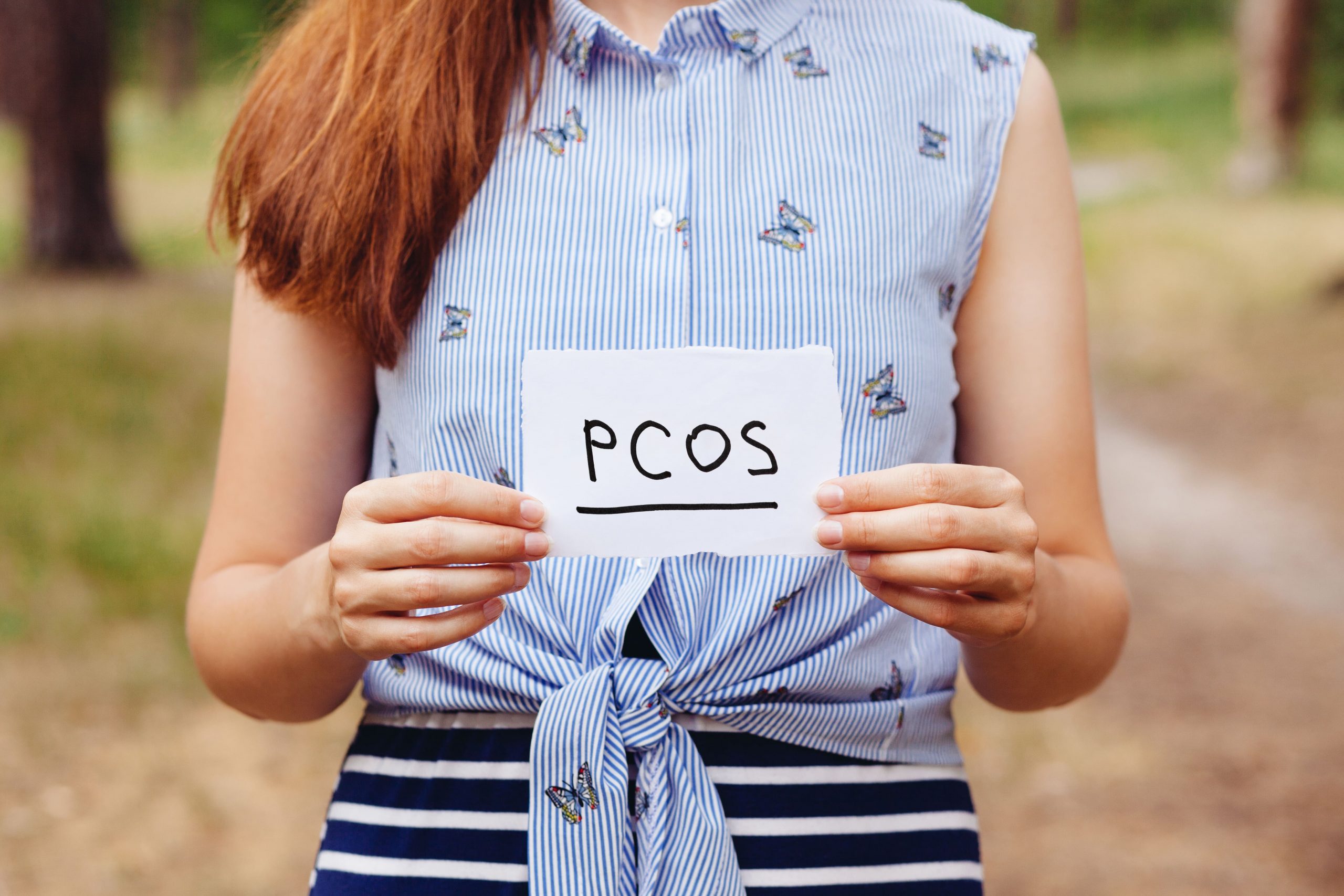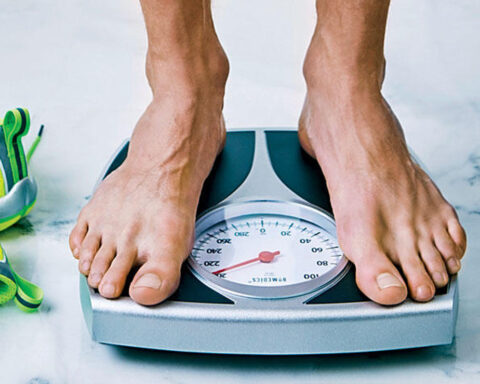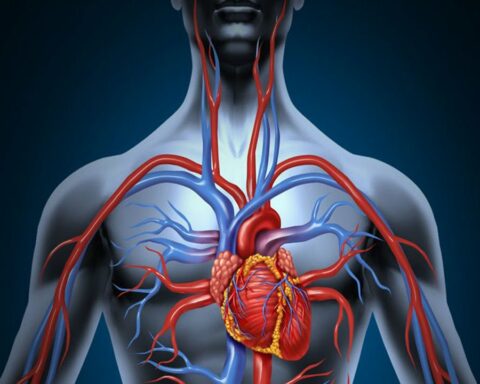Polycystic ovary syndrome (PCOS) is a medical condition that effects either or both ovaries of a woman. It is usually characterized by imbalanced levels of hormones which makes losing weight difficult.
Other common symptoms of PCOS include irregular periods, weight gain, heavy bleeding, hirsutism (growth of air), acne, and frequent headaches. It is estimated that PCOS can affect up to seven percent of adult women. Bearing in mind that weight gain is one of its symptoms, which is even made worse with insulin resistance, inflammation, and imbalanced hormonal levels, losing weight can be very hard. Losing weight is believed to help correct insulin resistance, menstrual cycle, and quality of life in women with polycystic ovary syndrome. This article will help you with some tips to shed that extra pound with PCOS.
1. Cut Back on Your Carb Intake
Carb is one nutrient that most people reduce when trying to lose weight. When you lower your intake of carbs, you also reduce insulin resistance which can help manage PCOS. Studies estimate that up to seventy percent of women with PCOS have insulin resistance – this occurs when your cells fail to respond to the effects of insulin hormone. Insulin is important for blood sugar regulation and storage of energy in the body. Even in healthy people and women with PCOS, increased insulin levels can lead to weight gain and increased fat in the body. Also, eating foods with a low glycemic index (GI) can help manage PCOS. GI is a tool used to measure how fast a particular food can raise blood sugar levels. As a way of reducing insulin levels and ultimately losing weight, it is important that you consume low-carb and low-glycemic-index foods.
2. Increase Your Fiber Intake
Fiber promotes feelings of fullness, and it can help women with PCOS improve weight loss. Many women in the United States don’t consume adequate fiber from their diet, as most of them take only 16 g per day. The recommended daily value for fiber is 14 g for every 1,000 calories, which translates to approximately 25 in a day for women. Getting plenty of fiber can help women with PCOS because it can lower their total body fat, improve insulin resistance, and lower belly fat.
3. Get Plenty of Protein
Enough intake of protein has been linked to blood sugar stability and increased feelings of fullness after eating. For women with PCOS, protein can help them curb the craving for carbs which will make them consume fewer calories and manage hormones responsible for hunger. As a matter of fact, a high protein intake for six months in a raw can help lower up to 4.4 kg. Try to include such foods as nuts, eggs, meat, dairy, and seafood in your healthy diet to help increase your intake of protein.
4. Healthy Fats Can Help You
Increasing your intake of healthy fats can help you in many ways, including feeling more satisfied after eating, as well as promoting weight loss. A typical diet high in fat may be composed of 42 percent carbs, 19 percent protein, and 40 percent fat. Such a diet may effectively increase fat loss in areas around the belly as well reducing lean body mass. Keep in mind that fats are naturally high in calories, and so you need to stick to healthy ones which can only expand the volume of your stomach and lower hunger. As a result, you will consume fewer calories at the end of the day. Healthy fat foods you can eat include avocados, nut butter, coconut oil, and olive oil. For women with PCOS, it will do better to combine high-quality protein with healthy fats, which can further prolong the feelings of fullness.
5. You Can Add Fermented Foods
Fermented foods act as food to the good gut bacteria. Improving the health of good gut bacteria may help promote healthy metabolism and healthy weight maintenance. Research suggests that women with PCOS tend to have fewer good gut bacteria than women who don’t have this condition. It has also been shown that probiotics may impact positively on weight loss. For that matter, you can increase the number of healthy gut bacteria by eating probiotic foods such as kefir, kimchi, yogurt, cheese, and other fermented foods you can have access to. Probiotic supplements are also available, which you can take for the same purpose.
6. Reduce Intake of Added Sugar and Processed Foods
If you are really after losing weight with PCOS, you will need to avoid eating certain unhealthy foods. Studies suggest that frequent intake of processed foods and added sugars may elevate the levels of blood sugar, which can increase the insulin resistance risk and obesity. For women with PCOS, taking sugars processed differently may help. Processed foods are less satiating, which means that you will be left hungry even after consuming much of them. This only increases your calorie intake and makes it hard to lose weight. Cookies, cakes, fast foods, and candies are some of the foods loaded with added sugar and processed carbs.
7. Exercise Regularly
This is another perfect strategy for losing weight with PCOS. Engaging in regular exercise may be 30-60 minutes per week may help burn calories and lose fat in the belly and improve insulin sensitivity.
8. Get Enough Sleep Every Night
Getting enough sleep plays many vital roles in your health, including weight loss. Women with PCOS can have disturbed sleep patterns, including sleep apnea, sleepiness during the day, and insomnia. Getting enough sleep has been shown to lower the effects of hunger-related hormones like ghrelin and cortisol. As a result, you will be eating more frequently during the day. If you have PCOS, aim for seven to nine hours of sleep every night. You can help yourself fall asleep by not bringing phones to your bedroom, sleeping at the same time every day, and making your bedroom darker.
Conclusion
Weight gain is a common symptom of polycystic ovary syndrome. Losing and maintaining a healthy weight with this condition requires the woman to take extra initiative to manage weight and other related symptoms. Getting enough sleep and plenty of fiber and protein are among the best strategies to be implemented.
- Our Big Kitchen’ (OBK) is a non-profit organization located in Sydney, Australia - April 10, 2023
- Duos CBD, a hemp product E-commerce website - April 10, 2023
- SOFA SPOONING SEX POSITION - April 7, 2023









